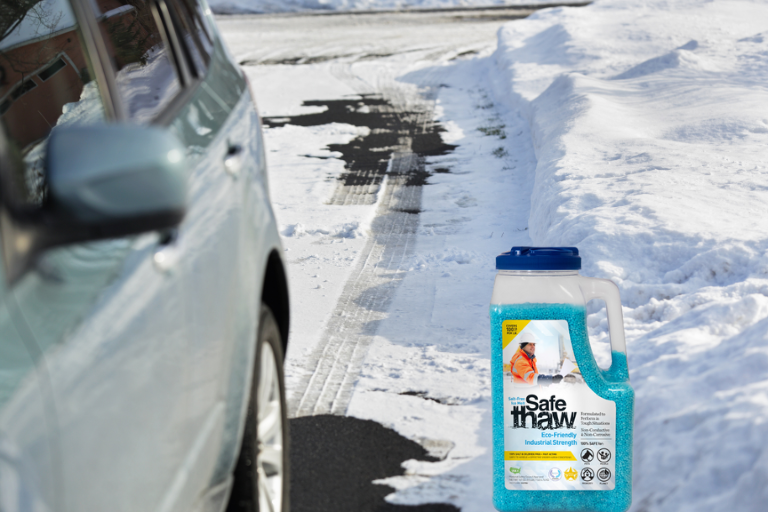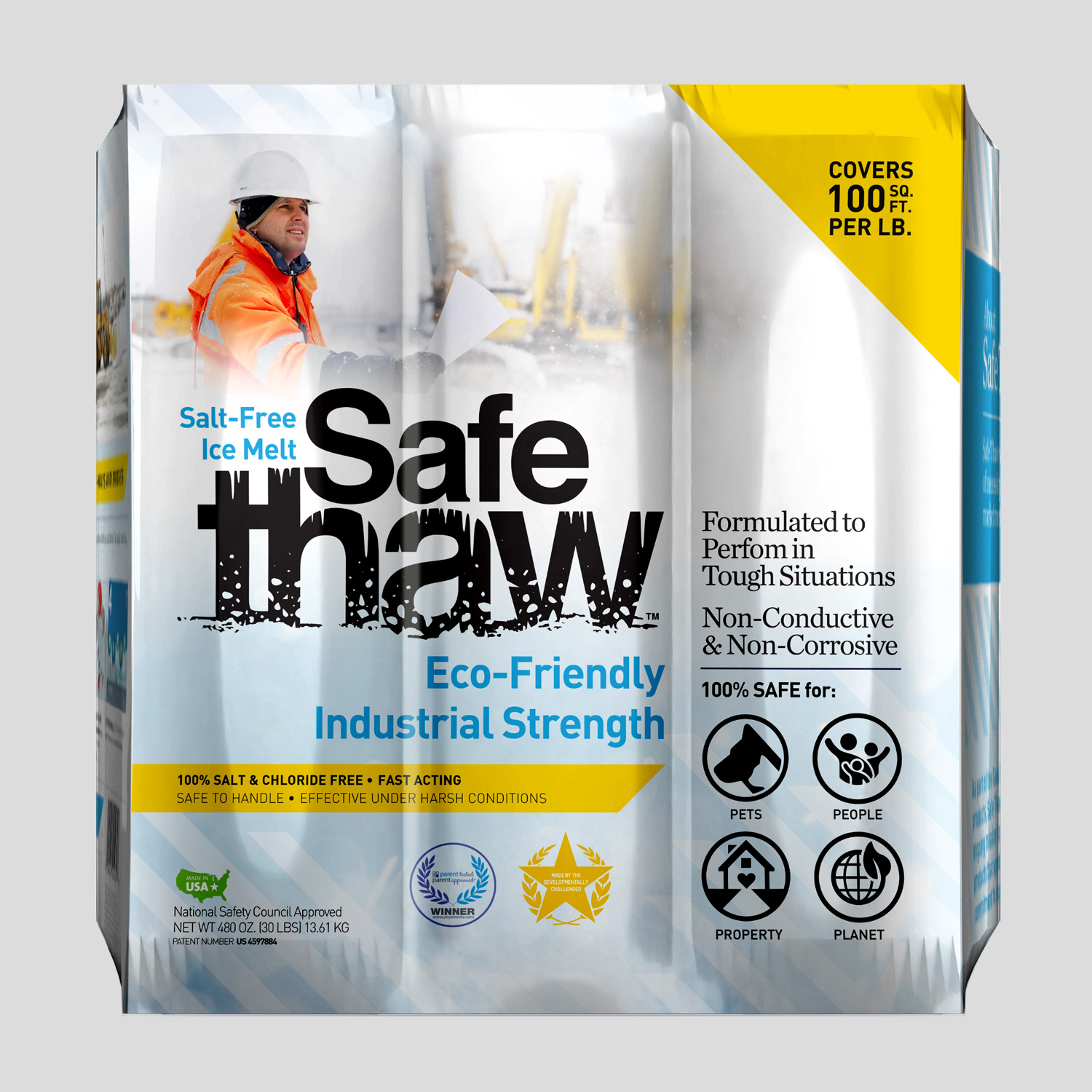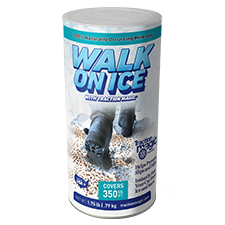How Thick Should Concrete Be For A Driveway?

Ah, the good old concrete driveway. It’s not just a place to park your car, folks. It’s the grand introduction to your home, the rugged runway that greets your tires after a long day, and let’s be honest, the occasional stage for an impromptu neighborhood basketball game. But one question that has homeowners scratching their heads is about concrete thickness for driveway–

Blizzards Are Here—Stock Up on Safe Thaw Today!
Safe Thaw was created as the ice management solution for tough winter environments. Ideal in commercial and industrial properties, shops, government agencies, bridges, and construction.
The Standard Depth: A Safe Bet
What should be the concrete thickness for driveway? Generally, for most residential driveways, the industry standard is a thickness of 4 inches. Why, you ask? At this depth, the concrete provides adequate strength to support most vehicles, from your dainty bicycle to your hefty SUV, without cracking under pressure.
Heavy-Duty Needs? Go Thicker!
Got a truck or a motorhome that you park on your driveway? Or maybe you’re planning to install a basketball hoop for some slam dunk action? In such cases, you might want to think about increasing the thickness a bit more. Going up to 5 or even 6 inches can give you that added strength and peace of mind.
Winter Storms Are Here!
Stay Safe with Our 100% Salt And Chloride-Free, Pet Safe Ice Melt.
Factors To Consider: It’s Not All About Thickness
While the depth of your concrete plays a starring role in its durability, there are other cast members in this drama:
Subgrade Preparation: This is the unsung hero. Prepping the ground underneath is crucial. A well-compacted subgrade will provide the necessary support to your concrete, ensuring its longevity.
Reinforcements: If you’re on the fence about how thick your concrete should be, reinforcements can tip the scales. By using wire mesh or rebar, you can enhance the slab’s strength, allowing for a thinner slab without compromising on durability.
Joint Placement: These are the intentional lines or separations in your concrete. Proper joint placement can help control cracking. Think of them as pre-emptive strikes against those unpredictable cracks.
The Big Question: Does Thickness Affect Cost?
Here’s the deal. Thicker concrete means more material, and yes, that can affect the cost. But remember, it’s an investment. A thicker slab might be pricier in the short run, but it can save you big bucks down the road in repair costs.
Winter’s Wrath And Your Driveway
For those in colder climates, winter can be a formidable foe to your driveway. Ice, snow, the dreaded freeze-thaw cycle – they can all wreak havoc. And let’s not even talk about the damage caused by some harsh chemical deicers.
That’s where Safe Thaw dances in. A granular ice melt that’s both effective and kind to your concrete. It’s chemical and toxin-free, which means while it battles the ice, it ensures your driveway doesn’t bear the brunt of harmful agents.
100% Salt & Chloride-Free Ice Melt for Winter Storm Protection.
Final Thoughts: Measure Twice, Pour Once
Determining the “concrete thickness for driveway” might seem like a mundane detail, but it’s a choice that’ll live with you for years. So, do your homework. Consult professionals if needed. And when it comes to protecting your driveway from icy invaders, remember to go gentle with Safe Thaw. Here’s to a driveway that doesn’t just look good but stays strong, season after season. Hope now you know how thick should a concrete driveway be.
Try Also Our Other Winter Safety Products:
Safe Paw
The Original and #1 Selling Pet and Child Safe Ice Melt for over 20 years. Guaranteed environmentally safe –It won’t harm animals or children, and it won’t damage your property. That’s Safe Paw. Safe Paw can change how winter affects our planet.

Walk On Ice
The handy disposable canister can be taken everywhere, with the same 100% naturally occurring minerals that provide instant traction on ice or snow. Use it on sidewalks, steps, or as an instant traction agent for your car.



